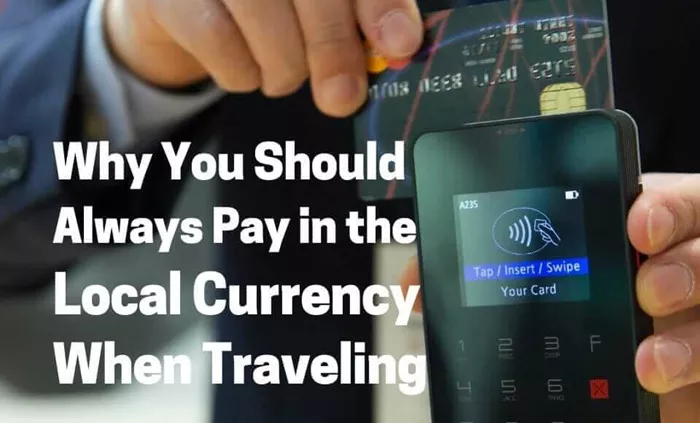Traveling abroad presents many financial considerations, one of which is the choice between paying in US dollars (USD) or the local currency. This decision can significantly impact your travel budget, as it involves understanding exchange rates, fees, and the local financial landscape. Here’s a comprehensive guide to help you determine the best payment strategy for travels.
1. Understanding Exchange Rates and Fees
Local Currency
Better Exchange Rates: Generally, paying in the local currency gives you a better exchange rate. Merchants and ATMs often offer more favorable rates than what you would get paying in USD.
Avoid Double Conversion: When you pay in local currency, you avoid the risk of double conversion fees. For instance, if you pay in USD, the merchant may convert the amount to the local currency at an unfavorable rate before charging your card.
USD
Dynamic Currency Conversion (DCC): Some merchants offer DCC, allowing you to see the transaction amount in USD before completing the payment. However, DCC typically comes with higher fees and poor exchange rates, making it more expensive.
Hidden Fees: Paying in USD can also involve hidden fees, especially if your card issuer charges for foreign transactions. These fees can add up quickly and make your purchases more expensive.
2. Credit Card and Bank Policies
Local Currency
No Foreign Transaction Fees: Some credit cards do not charge foreign transaction fees when you pay in the local currency. Using such cards can save you money and offer better exchange rates.
Currency Conversion Policies: Many banks and credit card companies offer favorable currency conversion rates, especially if you use major global networks like Visa or Mastercard.
USD
Convenience Factor: In some countries, especially those with unstable currencies, merchants might prefer USD and even offer a discount for paying in USD. However, this is more common in tourist areas and might not apply everywhere.
Bank Fees: Be aware of your bank’s policies regarding foreign transactions in USD. Some banks might still charge fees for transactions processed abroad, even if they are in USD.
See also: Which Countries Currencies Are Expected To Appreciate Versus The USD?
3. Local Market Practices
Local Currency
Widely Accepted: Local currency is universally accepted everywhere you go within the country. It ensures that you can pay without any issues and avoids potential confusion or refusal of payment.
Avoid Overcharging: Paying in the local currency reduces the risk of being overcharged. Merchants might inflate prices when quoting in USD, especially in tourist-heavy areas.
USD
Selective Acceptance: While USD is widely accepted in many countries, it’s not universal. In some places, only specific businesses or tourist areas might accept USD, and you might face difficulty in more local or rural areas.
Negotiation Leverage: In some markets, particularly in developing countries, you might have better negotiation leverage when paying in USD. This can sometimes lead to discounts or better deals.
4. Safety and Security
Local Currency
Less Attractive to Thieves: Carrying local currency can make you less of a target compared to carrying USD, which might be more attractive to thieves.
Trackable Transactions: Using local currency through your credit card or bank can make it easier to track transactions and dispute any fraudulent activity.
USD
Emergency Use: Having some USD on hand can be useful in emergencies, especially if you lose access to local funds or if local ATMs are not working.
Familiarity: For some travelers, carrying USD can provide a sense of security, as it’s a familiar currency and can be easily exchanged.
Conclusion
In most cases, it is better to pay in the local currency when traveling. This approach generally provides better exchange rates, avoids additional fees, and ensures broader acceptance. However, having some USD on hand for emergencies and in specific situations where it might be preferred can be a good backup strategy. Always check your bank and credit card policies regarding foreign transactions and be aware of the local market practices to make the most informed decision during your travels.
Related Topics:

